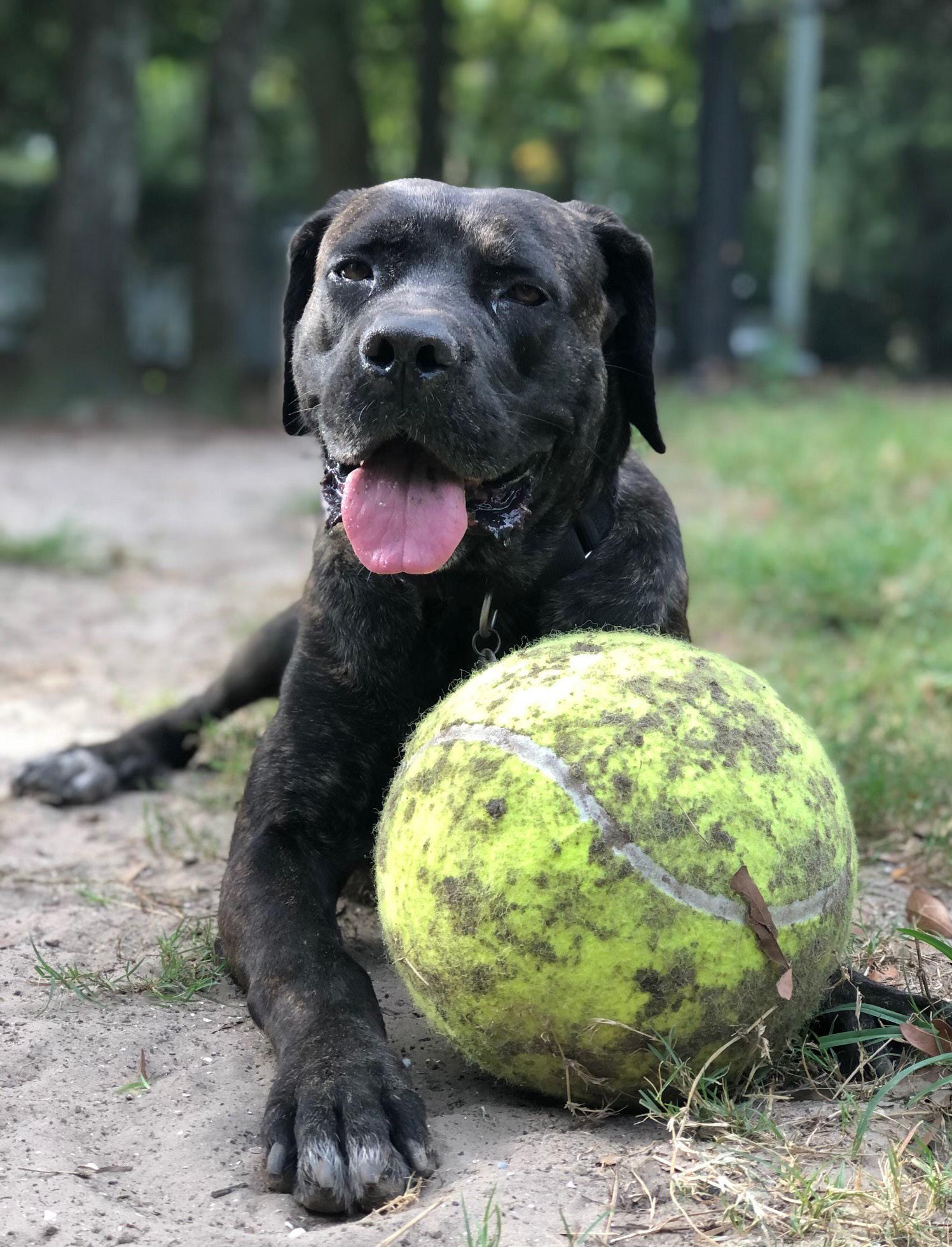
4 minute read
Slow & Steady:The Road to a Happy, Healthy Rescue Dog!
WRITTEN BY: ALEXIS KAUL, Pet Helpers Animal Behavior Manager,
We’ve all seen it, cowering body posture, tail tucked, stress panting, and trembling. All indications of an under-socialized and scared dog, and potential adopters are often quick to look away from dogs who display these behaviors. At Pet Helpers, as with many other rescues, we work hard to allow each dog to achieve Brambell’s Five Freedoms needed to acclimate to their new home environments. As an example to achieve freedom from fear and distress, we must be mindful of each dog’s unique triggers. If a dog displays reactivity to visual stimuli in the kennel, offering a visual barrier at their kennel’s door can greatly reduce their stress levels. Through the use of training and behavioral modification interventions, we are able to socialize and begin the road to rehabilitation. Throughout my time working in shelters, I am fortunate to say I have been a part of so many touching behavior-success stories by utilizing science-based methods and working toward slow and steady progress.
Advertisement
One of my favorite success stories is Mama June. Mama June came to us from another rescue in February 2021. Mama June was pregnant and soon gave birth to five beautiful puppies who have all since been adopted. She was resistant to handling and any interactions with humans left her cowering, shaking, frozen and overall very frightened. It was clear that Mama June was not thriving in the shelter environment so we placed her in one of our most trusted foster homes. Slowly but surely her body language started to loosen a little bit day by day! Getting her outside was a challenge due to her fear of the leash and new environments/experiences. We started with the basics: positive association with the leash and treats. The foster would clip the leash on and off, not always ushering her outside, while supplying Mama June with ample treats. By associating the treats with the leash we were using counterconditioning methods to get her more comfortable.
Once medically cleared, we introduced her to other dogs Smushie and Hawk in hopes of offering her more socialization opportunities. A new dog blossomed right before my eyes! She was immediately off to the races with the other dogs and was soon frolicking, playing and wrestling. I could not believe the transformation that occurred when another dog was present - it was an incredible sight to see. Helper dogs can be really beneficial in adding confidence and while they don’t completely “fix” dogs, they can be a great tool to use if the other dog is accepting. After Mama June began spending more time with the foster’s dogs she began to approach people more frequently. The dogs were showing her how to be a dog really! Now she is known for lounging on the couch, playing chase/tag with the resident dogs, and even cuddling up to her foster. Her foster mother has since fallen in love with her and decided to finalize the adoption in September 2021! We are so thankful for the hard work and love she has offered to our sweet Mama June!

Peaches from Pet Helpers
Another dog we’ve been working with on behavior modification and socialization is the big and beautiful Peaches who came to us as a stray in May 2021. When she originally came to us it was evident that having people close to her made her extremely uncomfortable. She would retreat or push herself into the farthest corner possible until curiosity got the best of her and she would approach. We focused on those short moments of approaching a person to reinforce her behavior with high-value treats. Hot dogs are her favorite! She began to get more comfortable with our staff members here and is really starting to show off her big goofy personality. Weighing in at 95 lbs she is a very clumsy girl who loves to play with tennis balls, frisbees, and even basketballs. The world is still a very scary place for Peaches so patience is very crucial in her training process.
At Pet Helpers, our training methods are all positive reinforcement-based. This means we ask and show the dogs what we want them to do rather than telling them what not to do. When working with fearful under-socialized dogs it is crucial to go at the dog’s pace - no matter how slow or fast that might be. We want to avoid flooding a dog with too many triggers and overwhelm them as this can hinder the training process. Although some of the goals dogs achieve in training might seem like a small step, for example simply approaching might seem standard but for our fearful pups, this is huge! We celebrate every small victory because each milestone brings a dog closer to living a happy and healthy life inside of a home.
Learn more about the dogs and cats we work with daily at pethelpers.org and be sure to email office@pethelpers.org with any questions or adoption inquiries.■






